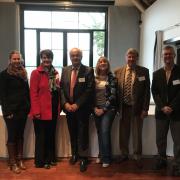
Under OIV patronage this event brought together over 350 members of the industry, researchers, and administrators.
Thirty of the researchers and experts, of which a quarter came from abroad, presented their work in different vitivinicultural domains. The themes included viticulture, enology, and economy with specific focus on new developments related to climate change as well as environmental subjects.
Jean-Marie Aurand opened the conference with a presentation of the OIV and its missions followed by a panorama of the worldwide vitivinicultural industry. The Director General also highlighted some of the major challenges the industry may face in the future in regards to competitiveness, the environment, and consumer expectations.
In the presence of South African additional delegate to the OIV, Mrs. Wendy Jonker, as well as many other experts including, Jan Booysen, Yvette Van der Merwe and Pierre Van Rensburg, the Director General congratulated the South African delegation on their excellent participation and contributions to the Organisation.
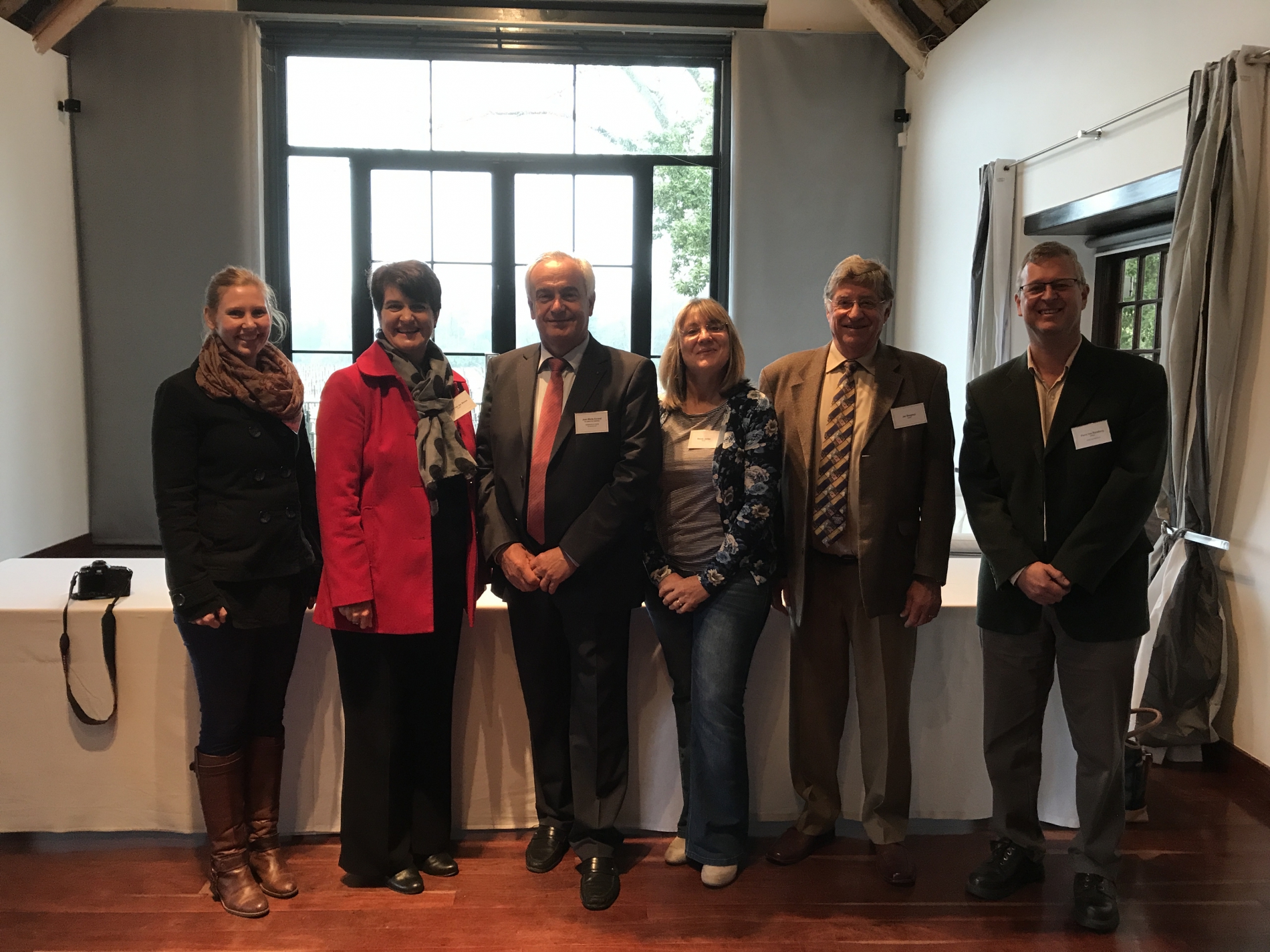
A member of the OIV since 1963, South Africa is home to 130 000 hectares of vineyards and is the seventh largest producer worldwide with a production of 10 million hectoliters of wine.
South Africa is also an important producer and exporter of table grapes with an annual production of 280 000 tons, of which 90% are exported.
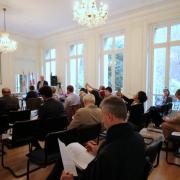
To attend this press conference, journalists are kindly asked to send an email with their name and their professional contact details to press@oiv.int.
Date: Tuesday 24 October 2017
Time: 11 am
Location: International Organisation of Vine and Wine, (OIV), 18 Rue d'Aguesseau, Paris 75008 - Metro station Madeleine or Concorde [see map]

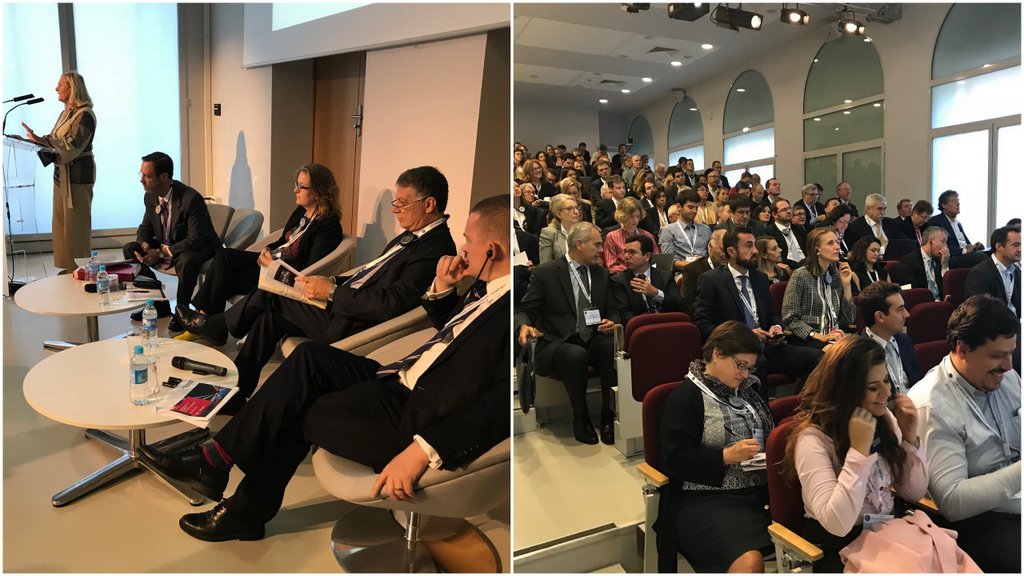
At the invitation of the Bordeaux city council, the Bordeaux Wine Council (CIVB) and the Council for the Grands Crus Classés in 1855, the experts specialised in wine law discussed the theme of “Wine law in practice: compliance, negotiation and dispute settlement”.
As the vine and wine sector has become global, a specific branch of law has thus developed around it and this relies upon the international expertise assured by the IWLA (International Wine Law Association), its members and its network.
The German solicitor Thomas Schmitz, President of the IWLA, likes to believe that Montesquieu (a magistrate and vine grower, undoubtedly one of the first legal experts in wine who was, in his time, opposed to restrictions on planting) would have particularly appreciated the subject matter. The theme allowed for discussions on alternative methods for conflict resolution and the implementation of viticultural controls where, for the first time, a panel of French, Australian and Canadian judges can compare the methods for assessing the validity of evidence.
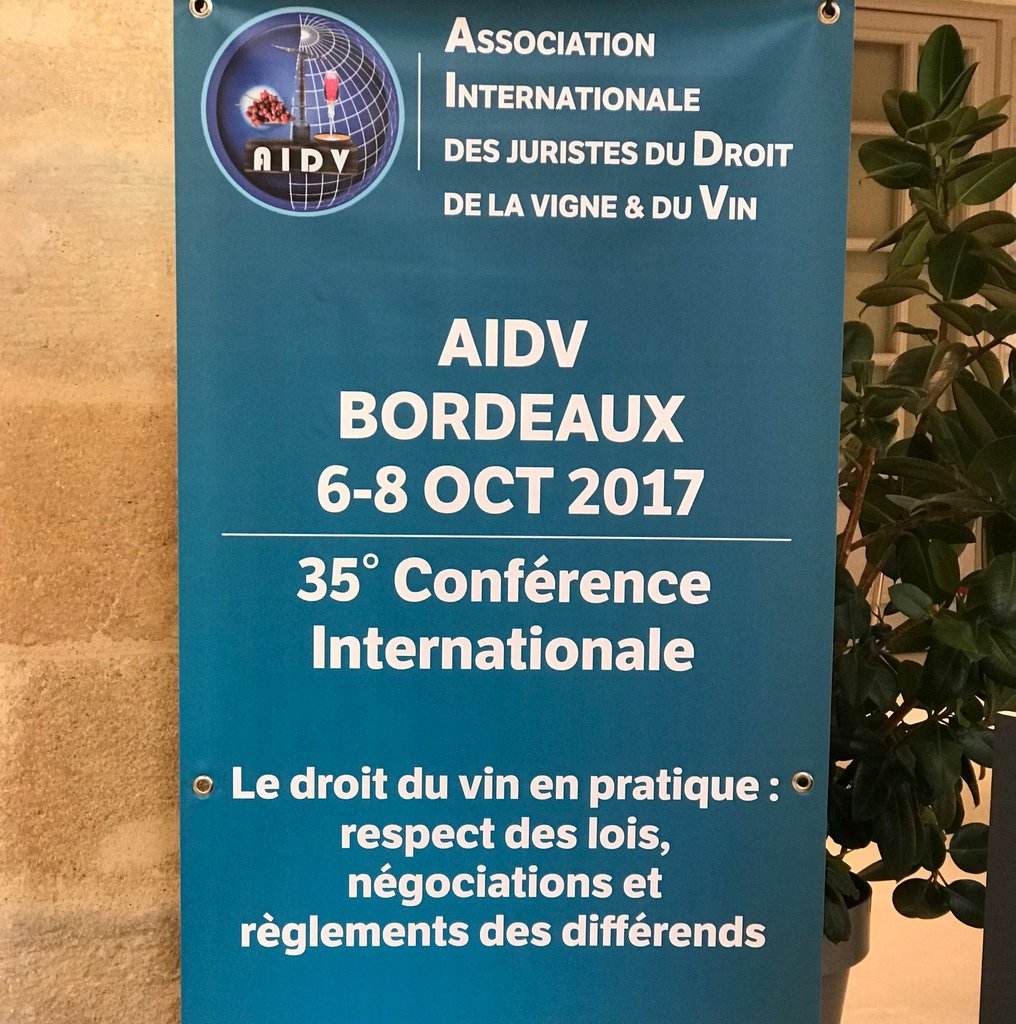
On the 30th anniversary of the first conference held in Champagne in 1987, the Director of the Council for the Grands Crus Classés in 1855 and active member of the IWLA, Sylvain Boivert, hosted the two days of the conference at the Palais de la Bourse. He expressed his delight that – following Tuscany in 2016 and prior to Napa Valley the coming year – Bordeaux was able to welcome the elite of the world of wine law for these annual meetings that saw unparalleled success in 2017, pairing legal expertise with the attractiveness of Bordeaux and the art of playing host to several Grands Crus Classés.
With a Master in Vine and Wine Law from Bordeaux, Sylvain Boivert was also appreciative of the opening up of the IWLA, which enabled around 50 Master's students in Wine Law from the Universities of Bordeaux and Reims to attend this conference for free and thus meet the top international experts in the field.
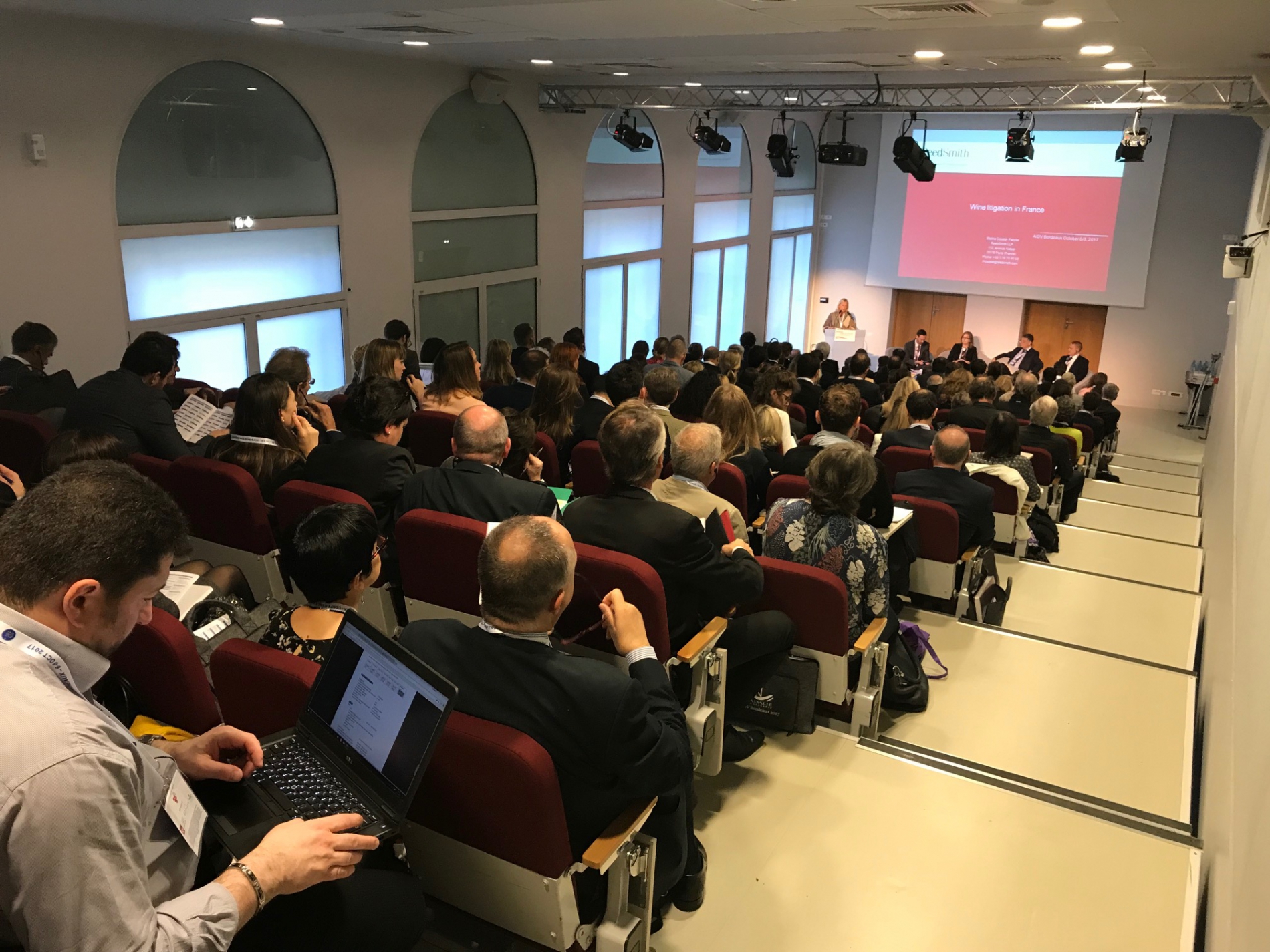
As emphasised by the IWLA Secretary General, Yann Juban, legal expert and Assistant to the Director General of the OIV (who placed this conference under its patronage), "following the creation of oenological science in the 19th century and the development of global vineyards after the phylloxera crisis in the 20th century, an area of law truly specific to vine and wine was put in place, at the national, regional and international levels". To quote Montesquieu, he specified that the following also applies to vitiviniculture: "useless laws weaken necessary laws".
-------------------
The IWLA (International Wine Law Association) was founded in 1985 by European and American legal experts, with the aim of creating a forum for research and discussion on legal issues concerning the viticultural community and wine trade around the world. Today the IWLA is composed of over 300 members, individual and institutional, originating from 30 countries spread over 5 continents.
The IWLA seeks to involve the competent authorities in its work in order to keep them informed of vitivinicultural law in other countries and to thus contribute to the sector's evolution in terms of harmonisation at the international level, particularly through its observer status at the OIV (International Organisation of Vine and Wine) and WIPO (World Intellectual Property Organization).
The IWLA's members include lawyers, judges, civil servants, notaries, university law professors, students, heads of companies or professional organisations, and associations. The IWLA deals with issues related to rural law, intellectual property and counterfeiting, contracts, trade, economic law and fraud, publicity, the environment, jurisprudence, disputes, arbitration and all other legal matters that apply to the vine and wine sector, from a comparative and international perspective.
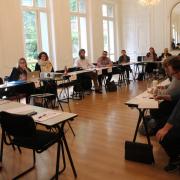
After an introduction to the OIV and its activities by the different unit heads, they were welcomed by Director General Jean-Marie Aurand, who emphasised the distinctive character of this training programme and the opportunities it offers, thanks to the network of associated universities and companies.
The specific nature of the course is designed to be mono-sectoral, multi-disciplinary, itinerant, international and experiential all at the same time; it also now has one of the most developed networks in the world of wine. Since 1987, almost 500 players and policy makers in the wine world have taken this training programme.
Before this year's class left the OIV headquarters, Jean-Marie Aurand stressed the course's international dimension, which is expressed through a curriculum that every year leads students to discover over 20 key countries on the wine planet, spread over the 5 continents.
On this 30th academic year, the OIV MSc in Wine Management will celebrate its 30th anniversary on Friday 13 October at the OIV headquarters with a special conference and tasting day.
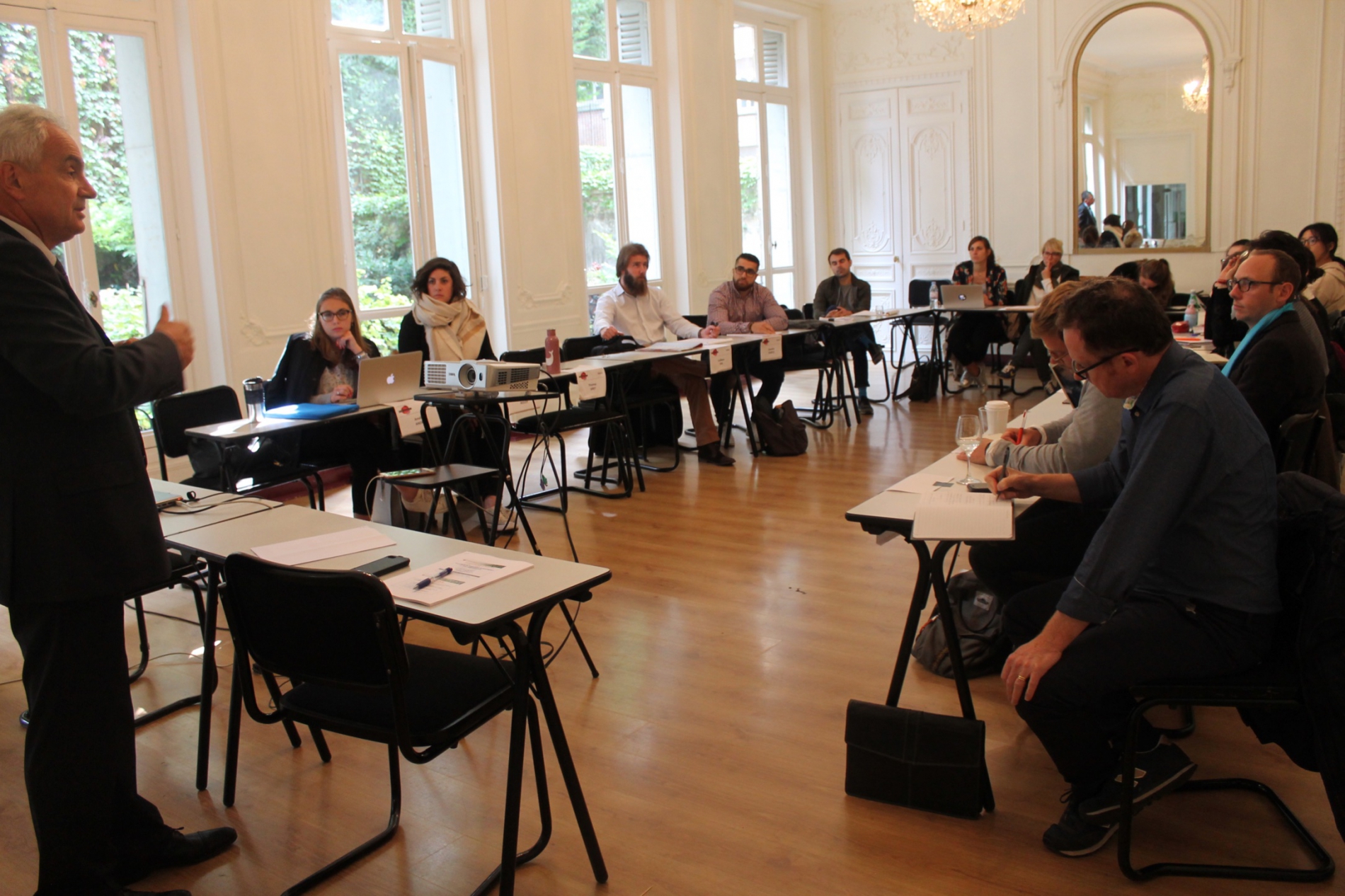
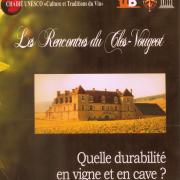
Held over three days in the heart of the Burgundy vineyards, this event brings together different actors in the vitivinicultural world (academics, researchers, vine growers, merchants, etc.) to reflect on a particular theme.
In 2017, this theme was sustainability in the vineyards and the winery, and several dozen participants took part over the three days, with foreign speakers being well represented.
At the invitation of the Head of the UNESCO Chair, Jocelyne Pérard, the OIV Director General closed the conference. On this occasion, Jean-Marie Aurand presented the OIV's activities related to sustainability, carried out through a new holistic approach first implemented in 2015.
It should be noted that the UNESCO Chair of the University of Burgundy made the application to include Burgundy vineyards on the World Heritage of Humanity list of natural and cultural sites, as viticultural sites. This recognition was granted in 2015.
There are 15 or so sites around the world associated with viticulture that have achieved this recognition. They are an illustration of the human activity, through the mark they leave on the land and through the cultural traditions with which they are associated.